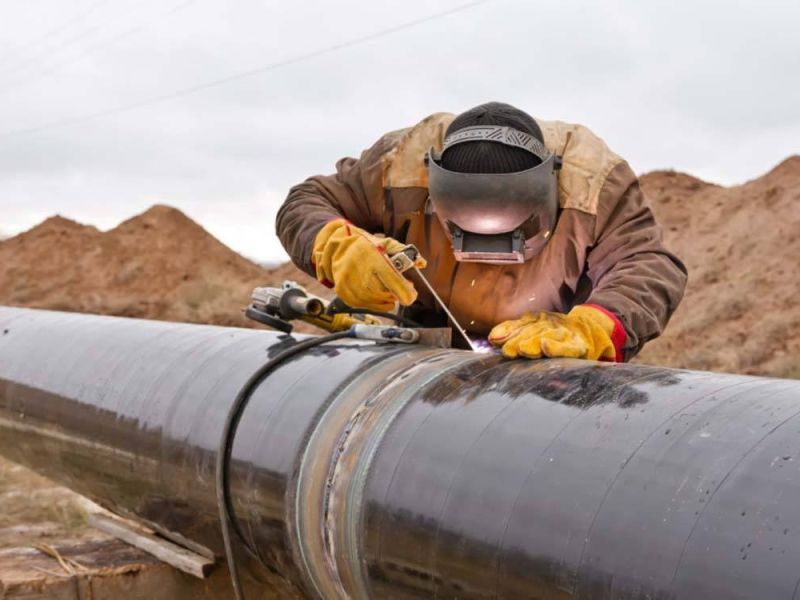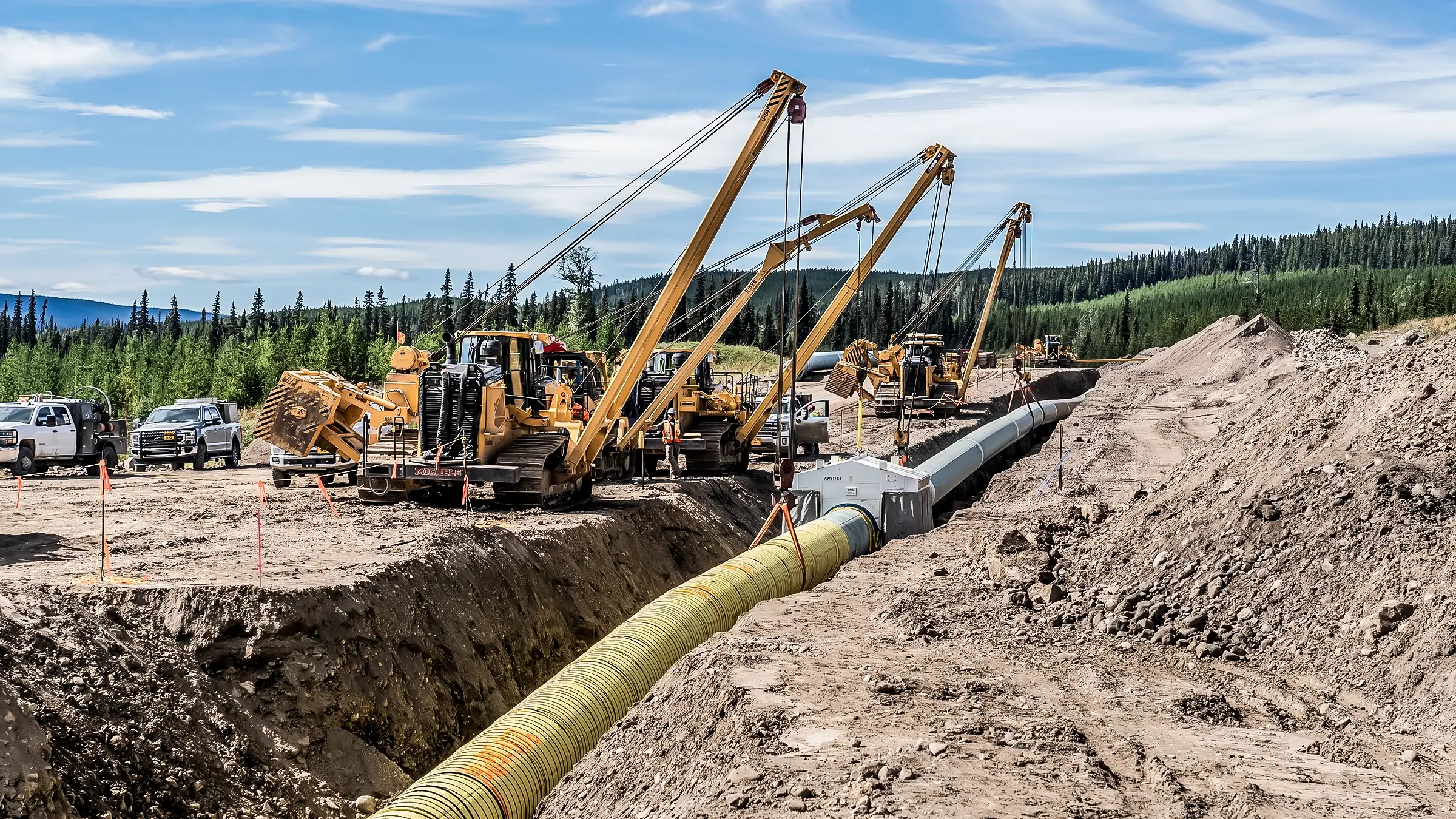5 Ways Why Creek Pipe Midland Sets the Standard in Leak Detection
Wiki Article
A Comprehensive Guide to Comprehending Pipelines and Their Role in Building
Pipes are essential components in building, offering important features in waste, gas, and water administration. Their option and application can significantly influence a building's performance and safety. Various materials, such as PVC, copper, and PEX, provide unique advantages suited to particular needs (Creek Pipe Texas). Recognizing these variables is vital for any construction job. As one explores the ins and outs of pipes, the implications for compliance and public health ended up being significantly apparentThe Importance of Piping in Construction
Pipelines act as crucial channels in building and construction, promoting the movement of water, gas, and waste throughout structures and infrastructure. Their duty prolongs past mere transport; they are essential for ensuring the capability and security of commercial and household atmospheres. Appropriately set up pipes add to the reliable circulation of sources, allowing daily activities such as heating, food preparation, and showering. Pipes play an essential role in waste monitoring, ensuring that sewer and wastewater are properly eliminated from living spaces.The significance of pipes is also shown in their effect on public health. Defective or insufficient piping systems can result in contamination and unsafe problems, making high quality products and installation methods important. Additionally, pipelines have to abide with different building codes and guidelines, which are developed to shield both residents and the setting. As a result, the relevance of pipes in construction encompasses both sensible functionality and important health factors to consider.Kinds Of Piping Used in Building Jobs
Various kinds of pipes play a considerable duty in structure jobs, each created to fulfill details requirements and applications. Amongst one of the most commonly used pipeline types are PVC, which is immune and lightweight to corrosion, making it suitable for drainage and vent systems. CPVC pipes, comparable to PVC, can withstand greater temperature levels, frequently used in hot water systems. Copper pipes are known for their durability and reliability, regularly employed in pipes and heating applications. Galvanized steel pipelines, while less typical today, were once a standard for water lines due to their toughness. Additionally, PEX (cross-linked polyethylene) pipes are getting popularity for domestic plumbing as a result of their flexibility and resistance to scaling and chlorine. Finally, cast iron pipes are preferred for their sound-dampening properties, commonly utilized in waste and soil systems. Each pipeline kind serves distinctive features, ensuring efficient procedure in building and construction tasks.Usual Products for Pipeline and Their Residence
In building and construction, the option of pipeline products is crucial for guaranteeing durability and functionality. Steel pipelines offer toughness and resistance to high pressures, while plastic pipes give lightweight and corrosion-resistant choices. Compound pipelines incorporate the benefits of both materials, making them versatile options for various applications.Metal Pipeline Options
Metal pipes are indispensable parts in construction, offering a series of alternatives that satisfy ecological problems and different applications. One of the most common products consist of steel, copper, and cast iron. Steel pipes are understood for their stamina and longevity, making them suitable for high-pressure applications. Copper pipes are preferred for their rust resistance and antimicrobial residential properties, often used in pipes systems. Cast iron pipelines supply outstanding audio insulation and are excellent for waste and water drainage systems. Each steel kind has distinctive advantages; as an example, galvanized steel can stand up to rust, while stainless-steel uses remarkable corrosion resistance. Choosing the ideal metal pipeline depends upon elements such as expense, ecological exposure, and the certain needs of the construction job.
Plastic Pipeline Advantages
Plastic pipelines have actually gotten popularity in construction as a result of their lightweight nature and adaptability. These pipes, made from products such as PVC, CPVC, and PE, deal excellent resistance to corrosion and chemical damage, making them suitable for numerous applications. Their ease of installation more enhances their allure, as they can be reduced and joined without unique devices. Additionally, plastic pipelines are normally much more affordable contrasted to metal choices, adding to reduced overall task expenses. Their smooth indoor surfaces minimize rubbing and boost flow prices, while insulation properties aid preserve temperature level control in plumbing systems - Creek Pipe Midland. With a wide variety of dimensions and setups readily available, plastic pipes effectively satisfy the diverse demands of modern building tasksComposite Pipe Characteristics
Composite pipelines combine different products to leverage their private toughness, causing improved performance and sturdiness. Generally, these pipelines contain layers that may consist of porcelains, plastics, and metals, each adding distinct properties. For example, the internal layer might be made of a corrosion-resistant product, while the external layer provides toughness and influence resistance. This combination allows composite pipes to withstand extreme temperature levels and pressures, making them suitable for a vast array of applications, including water supply and commercial procedures. Additionally, composite pipes are commonly lighter than typical products, promoting less complicated handling and installment. Their flexibility and adaptability to different settings make them a favored choice in contemporary building and construction projects, ensuring longevity and effectiveness in liquid transportation systems.Applications of Pipeline in Pipes Equipments

Electrical Avenues: The Role of Water Lines in Electrical wiring
In contemporary building, electric avenues play a vital function in guaranteeing the effective and secure transmitting of electric circuitry throughout buildings. These pipes supply a protective path for electrical cords, protecting them from physical damage and ecological aspects. Different products, such as PVC, steel, and flexible conduits, are used depending on the particular needs of the installation.Furthermore, channels assist in organizing wiring systems, lowering the danger of electrical risks like brief circuits or fires. They additionally assist in simpler upkeep and upgrades, as cables can be accessed and changed without substantial interruption to the structure.Proper setup of electrical channels is essential for conformity with building codes and security laws. This structured strategy not just boosts the long life of the electrical system yet likewise adds to the general safety and security and capability of the building, making electrical avenues indispensable in modern building methods.Selecting the Right Pipeline for Your Project
How can one guarantee the appropriate pipe selection for a building job? The choice process starts with recognizing the specific demands of the project, including the kind of fluids being moved, stress ratings, and ecological conditions. Material choices, such as Copper, steel, and pvc, ought to be reviewed based upon longevity, deterioration resistance, and thermal properties.Next, one have to think about the pipe's size and flow capability to identify effective procedure. Governing requirements and codes must also be followed, as they determine the acceptable products and practices for details applications. Consulting with specialists and making use of considerable sources can even more help in making notified decisions.Finally, evaluating the cost-effectiveness of different options is important, balancing first expenditures with lasting upkeep and substitute costs - Creek Pipe Company LLC. By meticulously analyzing these variables, one can with confidence pick one of the most appropriate pipe for their building task, assuring both performance and conformity
Upkeep and Evaluation of Piping in Building
Correct choice of pipes establishes the structure for their long-lasting performance, making maintenance and evaluation crucial components in building and construction. Regular upkeep warranties that any type of prospective problems, such as leaks, rust, or clogs, are recognized and attended to quickly, minimizing costly fixings and project delays. Arranged assessments, including aesthetic assessments and stress tests, play an important role in evaluating the honesty of pipeline systems.Additionally, keeping an eye on ecological aspects, such as temperature level fluctuations and dirt problems, can aid prepare for damage. Using sophisticated modern technologies, such as CCTV for indoor assessments, can boost the performance of upkeep initiatives. It is important to record assessment searchings for and maintenance activities to establish a detailed history of the pipe systems. By focusing on maintenance and examination, construction professionals can extend the life expectancy of read what he said their piping systems, guaranteeing they run efficiently and reliably throughout the job's duration.Often Asked Questions
How Do Pipes Influence Power Efficiency in Buildings?
Pipes significantly influence energy performance in structures by managing heating and cooling down systems. Correct insulation and products reduce power loss, while reliable plumbing styles reduce water usage, ultimately leading to reduced power consumption and functional prices.What Laws Govern Pipe Installment in Construction?
Laws controling pipe installment in building and construction normally consist of national and regional building codes, pipes codes, and security criteria. These assurance compliance with structural integrity, product requirements, and wellness demands, promoting safety and security and efficiency in construction techniques.Can Pipes Be Recycled After Use?
The inquiry of pipeline recyclability is considerable. Lots of products, such as steel and specific plastics, can be recycled properly. The condition and kind of pipe impact recycling usefulness, necessitating proper analysis prior to disposal.
How Do Climate Conditions Impact Pipeline Efficiency?
Weather significantly affect pipe efficiency. Extreme temperatures can trigger growth or contraction, while moisture may bring about corrosion. In addition, hefty precipitation can raise dirt pressure, affecting security and total capability of the piping system.What Are the Indicators of Pipeline Failing to Watch For?
Indicators of pipeline failure include leaks, unusual noises, discoloration of water, lowered water stress, and noticeable from this source deterioration. Routine examinations can assist discover these problems early, preventing costly repair services and guaranteeing system capability in the lengthy term. Pipes play a critical duty in waste administration, making certain that sewer and wastewater are successfully eliminated from living spaces.The importance of pipelines is likewise mirrored in their impact on public health and wellness. In building and construction, the selection of pipe materials is critical for making certain durability and capability. Metal pipes offer strength and resistance to high stress, while plastic pipes supply corrosion-resistant and lightweight alternatives. In addition, pipelines are used to get rid of wastewater, connecting toilets, sinks, and drains to municipal sewage systems or septic tanks.Different kinds of pipelines, such as PVC, copper, and PEX, are chosen based on aspects like sturdiness, cost, and certain application demands. Exactly how can one guarantee the best pipe option for a building and construction task?Report this wiki page